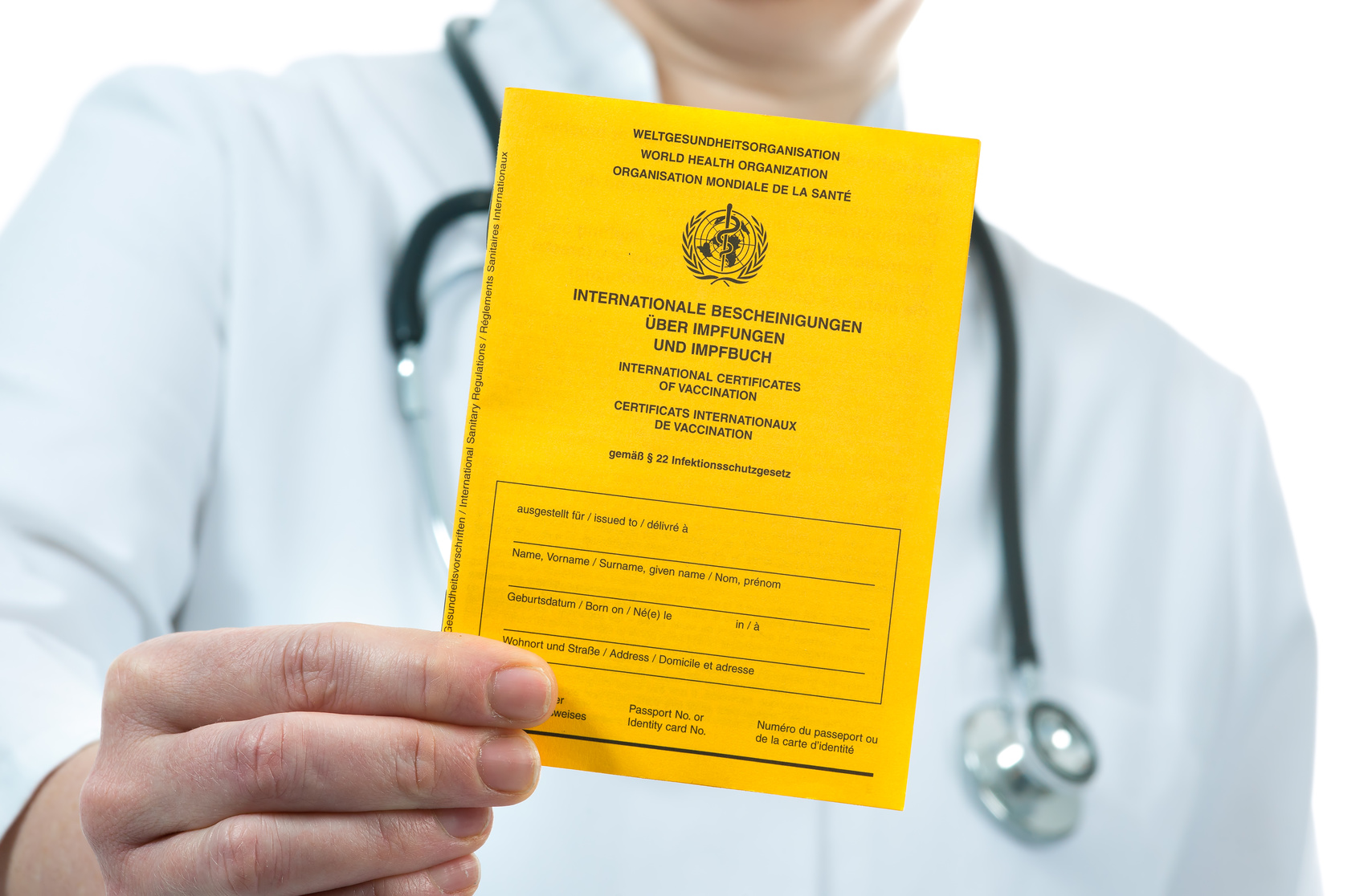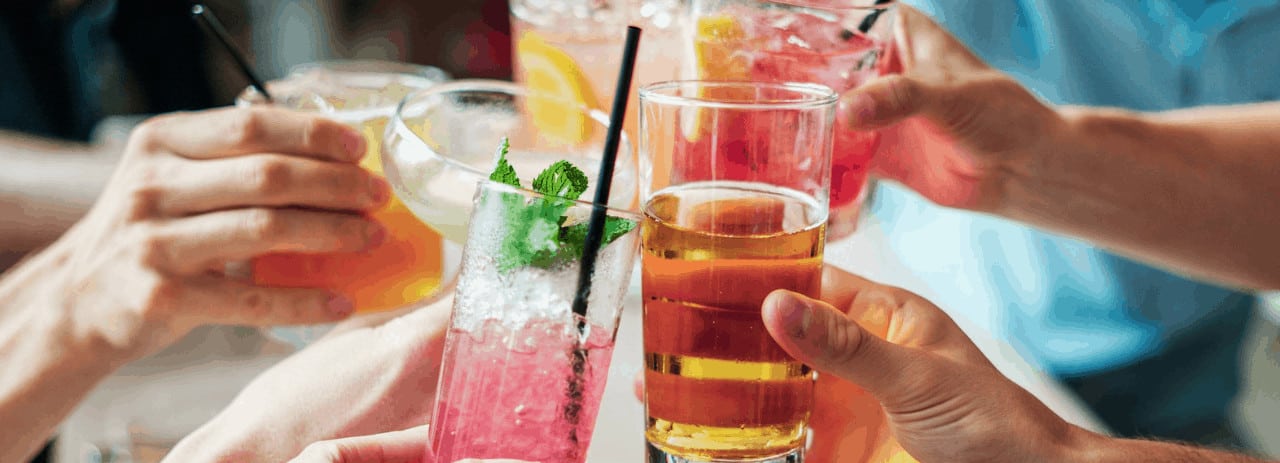Month: January 2019
We’re celebrating International Nurses’ Day with stories from our wonderful nurses about why they became a nurse.
Each one of them has a special story to share as to why they chose to become a nurse. We are so fortunate to have them working here at the Fleet Street Clinic. We’re celebrating who they are and all the incredible work they do for their patients on a daily basis.

I trained as a nurse in 2013 at City University based at Bart’s Hospital, London. After working for two years in sexual health, I undertook a Diploma in Tropical Nursing at the University of Liverpool. I have always had an interest in infectious and tropical diseases, and a huge passion for travel. After volunteering in Ecuador and Kenya, I completed a masters in Nursing with my research based in Bolivia. Working overseas exposed me to the burden of tropical diseases in other areas of the world, and travel medicine seemed to be a good fit for me.
I am able to educate patients about healthy travel and how to prevent tropical diseases. I also love to travel. It is really rewarding to be able to give someone good advice about a destination when you have visited. No consultation is the same, and I love the variety of people I see. In one day I have helped people prepare for deployment in a humanitarian crisis, a couple backpacking around the world, a family moving abroad, and television crew working in remote settings.
I have gained a formal qualification in travel medicine, and have also diversified my practice to incorporate Occupational Health as part of my remit. My role is rather a niche and unique in the nursing field but I wouldn’t have it any other way.

I began my nursing career after returning from a life-changing gap year in Australia. After working as a health care assistant at a brain injury hospital, where the majority of my family have worked in at one point in time, I decided to pursue a career in nursing. I enjoy building relationships with the patients and meeting new people. After qualifying in 2013, I moved to Bristol where I worked in the cardiology ward and admissions department. I was also a bank nurse, which involved me working different shifts on various departments around the hospital. I gained a breadth of experience in all fields.
One of the most memorable moments as a nurse was on an incredibly stressful night shift. I was a Junior Nurse. A patient left me a plate of strawberries and a note which said ‘You’re doing amazingly. Well done- you are a great nurse’. I will never forget those kind words and the confidence boost it gave me to get through the night.
I joined Fleet Street Clinic in January 2018 and haven’t looked back since. My passion for travel and nursing work brilliantly in my role as a travel nurse. I have also had the opportunity to further my skills by completing a qualification in Travel Health.
I love working at Fleet Street Clinic, it really is the perfect job.

I grew up in Brighton and had a passion for science and communicating with different people, so nursing seemed the best fit for me. I moved to London to train and qualify as a registered nurse at St Mary’s Hospital in Paddington. I was appointed Staff Nurse at St Mary’s where I gained a wealth of knowledge and experience working in the ‘Casualty’ department which is now known as A+E. I later moved on to St Thomas’s Hospital where I was appointed Senior Staff Nurse and later Senior Sister on a medical ward.
I took a break from my nursing career to have my two children. Soon after I was back working in GP practices as a ‘Treatment Room’ Nurse, which is now known as a Practice Nurse. I gained many skills and loved working with the patients and forming lasting relationships and friendships.
After 42 years working for the NHS, I decided to retire and hang up my nurse’s hat. However, when I saw the job at The Fleet Street Clinic I decided that I had areas of expertise I did not want to let go. I joined in April 2018 and have been working here for just over a year. I love the buzz of working at Fleet Street. I love the team and I love meeting new patients every day.
Visit our nurses at Fleet Street Clinic. Contact us today.
Sri Lanka was recently voted as the number one country to visit in 2019 by Lonely Planet. Our travel nurse Lucy spent two weeks exploring this award-winning country and here, she shares her top tips for a healthy trip.
January is an ideal time to visit Sri Lanka thanks to warm temperatures and clear skies. From tea tasting to surfing, hiking to whale watching, this ancient spice island has something for everyone.
Safari
If you are a wildlife lover, taking a guided jeep tour into one of Sri Lanka’s National parks is a must! Amongst the most popular are Yala and Udawalawe, where you are guaranteed to spot elephants by the dozen and if you’re fortunate a leopard. Prepare to wake up early and pack your mosquito repellent – most jeeps leave at dawn for the best chance of sightings, but mosquitos are also the most active during this time.
Although Sri Lanka is currently a Zika free zone, making it a popular choice for honeymooners, it is important to remember that mosquitos transmit other diseases such as Dengue and Chikungunya. Good bite protection is therefore essential and should include a mosquito repellent containing 50% Deet, as well as wearing long and loose clothing – also good for keeping the sun off your skin! Protect yourself from mosquitos with our Ultimate Bug Kit.
Train Rides
With new and improved services throughout the country, train travel is a highlight of any Sri Lankan trip and widely considered as some of the most scenic in the world. The most famous stretch is between Ella and Kandy; a journey that will last around 7 hours and takes you through lush jungle, tea plantations and waterfalls. Remember your antibacterial hand sanitiser though, because, as convenient as the onboard toilet is on a long journey, hand washing facilities aren’t always of a good standard. Perhaps pack some tissue as well!
Curries
Sri Lankan food is delicious and an essential part of the culture. As with all travel to tropical destinations, however, caution should be taken when trying out the local delicacies because contaminated food can cause travellers’ diarrhoea. So, before you sample the famous string hoppers and sambal, here are some simple food and water precautions to avoid an upset stomach:
- Make sure your food is served piping hot. Be cautious of food that has been sitting at room temperatures such as buffet and street food.
- Only drink bottled water, with an intact seal. This applies to the water you use to brush your teeth and the ice in your drinks.
- Avoid salads and uncooked vegetables that may have been washed in contaminated water.
- Always peel your fruit. If you can’t – don’t eat it.
- Ensure dairy products are pasteurised – many harmful organisms are transmitted through unpasteurised dairy.
It is worth investing in a gastro medical kit which contains all the necessary medicines should you get sick at any point during your travels.
Travellers’ diarrhoea is a common complaint in the returning traveller here at Fleet Street Clinic. If you are still experiencing stomach troubles on your return, our GP’s can run same day PCR testing to find the cause and most appropriate treatment.
If you would like aa travel appointment, you can book online.
By Lucy Mildren | Travel Nurse | January 2019
Panama sits on both the Pacific and Atlantic coasts. With its cloud forests, coffee farms, magical islands, world-class diving and a canal that connects two oceans, many people choose to make Panama their holiday destination.
If you plan to go, follow our travel tips to have a safe and healthy holiday.
Vaccinations for vacation
It is advised that all travellers be up-to-date with Diphtheria, Hepatitis A, Tetanus and Polio. Higher risk travellers may want to consider vaccinations against Typhoid, Rabies and Hepatitis B. It is best to speak with a travel expert to see what they advise for you.
You can find more information on our wellness and travel vaccinations.
Prevent mosquito bites
It is no longer necessary to take anti-malarial medication if visiting Panama. However, precautions against mosquito bites should be taken as viruses such as dengue fever, Zika virus and chikungunya can be transmitted in the region. Pack some insect repellent with at least 50% DEET, and take a mosquito net if you plan to stay in traditional accommodation that may not provide one. You can help protect yourself from mosquitos with our Ultimate Bug Kit.
Find out if you need a Yellow Fever Vaccination
Yellow Fever exists east of the Panama canal. If you plan to visit this area the vaccination is recommended. Also, those who plan to enter Panama from a country that has a risk of Yellow Fever (such as Colombia) will need to be in possession of a valid Yellow Fever Vaccination certificate.
Pack a first aid kit
A first aid kit with necessary medication and first aid items is a good idea. Accessing medical care and medical supplies in parts of the region can be difficult, especially for those who plan to visit the San Blas Islands, cloud forests or coffee farms. Those who plan on diving in the Bocas del Toro may wish to take out items such as ear drops for an infection, and antiseptic cream for any coral cuts.
Don’t get travel sick
A huge attraction in Panama is the coastline and archipelago, including the San Blas and the Pearl Islands. Accessing parts of Panama often involves long bumpy journeys by road and boat trips to the islands can often be choppy. If you suffer from travel sickness, ensure you pack medication to prevent this, and take it before you set out on the journey to prevent feeling queasy.
Book your travel appointment today
By Anna Chapman | Travel Nurse | January 2019
January is a great time to take control of your eating and help yourself to be a healthy you with the food you eat. Eating a more plant-based diet is undoubtedly recommended by many of the health professionals, however, it is essential that a healthy approach and balance is taken. Switching to a vegan diet can be unhealthy as well as healthy. In a vegan diet, it is essential to take note of particular nutrients that can get missed out which can lead to serious health consequences.
Protein
It is easy to not eat enough protein in a plant-based diet. Your body needs essential amino acids to build proteins and be healthy, so you should ensure you have a wide variety of proteins in your diet, such as:
- Soya
- Beans
- Lentils
- Seitan
- Quinoa
- Tofu
- Tempeh
- Nutritional yeast
Calcium
Calcium is an essential mineral for bone health. Insufficient calcium can lead to weak bones and bone fractures. Try and include as many calcium-containing foods each day. When choosing plant dairy alternatives try and choose those which are fortified with calcium. For milk look for at least 127mg calcium per 100g plant milk.
Foods that contain calcium include:
- Green leafy vegetables
- Tofu
- Bread
- Fortified plant milk
- Cauliflower
- Nuts
- Oranges
- Fortified plant based dairy alternatives
Iron
Iron is another essential mineral required for good health. Iron is a component of red blood cells. If we don’t eat enough iron then we can develop anaemia. This can cause severe tiredness, lethargy and generally feeling unwell.
Plant-based sources of iron include:
- Lentils
- Beans
- Tofu
- Tempeh
- Nuts
- Green leafy vegetables
- Fortified breakfast cereals
When eating these food, have with a food or drink high in vitamin C such as kiwi fruits or strawberries as these will enhance the absorption of iron. Avoid tea and coffee as this limits absorption of iron.
If you think you don’t get enough iron a simple blood test can confirm this, do check with your GP.
Vitamin B12
Vitamin B12 is the only vitamin present in animal food products.
There are some vegan products fortified with B12 such as;
- Nutritional yeast
- Yeast extract e.g., Marmite
- Breakfast cereals
If you have been vegan for some time, it may be worth considering a blood test to check your B12 levels. Discuss this with your GP.
Iodine
Iodine can be low on a vegan diet and can affect thyroid function. Sources of plant iodine include:
- Seaweed
- Iodized salt
Omega-3
Omega-3 containing foods, especially those high in alpha-linolenic acid (ALA) are involved with helping the body produce longer-chain omega-3s such as eicosapentaenoic acid (EPA) and docosahexaenoic acid (DHA).
Foods high in ALA include:
- Chia
- Hemp
- Flaxseeds
- Walnuts
- Soybeans
However, there is controversy as to whether this conversion is good enough to meet everyday needs. Some suggest a daily intake of 200–300 mg of EPA and DHA from an algae oil supplement may be a better way to prevent low levels, however, always check with your GP before starting any supplements.
Zinc
Zinc is required for overall good health but in particular for healthy hair and nails. Plant sources of zinc include:
- Beans
- Chickpeas
- Lentils
- Tofu
- Walnuts
- Cashew nuts
- Chia seeds
- Ground linseed
- Hemp seeds
- Pumpkin seeds
- Wholemeal bread
- Quinoa
By Ruth Kander BSc(Hons)RD | Dietitian
If you wish to discuss ways to maintain a healthy vegan diet or are thinking of becoming a vegan, Ruth holds a virtual clinic every Friday from 9am-2pm. Please call our reception team on 020 7353 5678 if you would like to request a face-to-face appointment
So Veganuary and Dry January are over… what happens next?
With your January healthy challenges over, you may be feeling healthier and refreshed knowing you have managed to stay vegan and/ or teetotal for 1 month. For some of you these new eating and drinking habits are here to stay but for many of you, it is now time to reintroduce meat and alcohol back into your diet safely.
A key theme to remember is everything in moderation!
What you eat and drink forms the backbone of maintaining a healthy lifestyle, which should always be the goal of any dietary alterations. Everyone’s dietary needs are different depending on their age, size and activity so there are no concrete rules to follow.
Read my top tips on how to reintroduce food and drink safely back into your diet.
Veganuary Tips:
Plant proteins are low in fat and high in fibre which is great for your gut health and cholesterol so following Veganuary these should continue to play a key part in your diet.
It is important to reintroduce food gradually and to start light. For the first few weeks stick with a predominantly plant protein diet and begin by introducing eggs and dairy initially. Move on to poultry and fish as these are easier for the body to digest than red meat but are high in healthy proteins. You will get the benefit of high-quality proteins and you won’t be missing out on iron.
Red meat is not bad for your body in moderation but it is calorie dense and the body digests it slower than any other food group. Your body won’t be used to the high protein content of red meats at the moment so introduce them in small quantities at first, building up so not to aggravate your digestive system.
Dry January Tips:
With regards to alcohol, it’s always nice to have a glass of wine with a meal or to relax at the weekend. But moderation is key. Try to keep within the limits of 14 units a week for both males and females and have frequent alcohol-free days throughout the week. It is important to remember not to have 6 alcohol-free days and save all 14 units to be consumed in 1 day, spread the 14 unit out evenly across the week.
An example of responsibly consuming alcohol could look like:
Weekly Alcohol Plan |
|
| Monday | Alcohol-free |
| Tuesday | 1 medium glass wine or equivalent |
| Wednesday | 1 medium glass wine or equivalent |
| Thursday | Alcohol-free |
| Friday | 3 medium glass wine or equivalent |
| Saturday | 2 medium glass wine or equivalent |
| Sunday | Alcohol-free |
*175ml (Medium Glass) = 2 Units / 250ml (Large Glass) = 3 Units

Drinking alcohol on an empty stomach will make you hungrier and increases the likelihood of snacking and unhealthy eating. It is much more preferable to drink alcohol with a meal as eating will distract you and make you fuller meaning you’ll consume less alcohol.
By Ruth Kander BSc(Hons)RD | Dietitian
If you wish to discuss ways to maintain a healthy vegan diet or would like more advice on how to reintroduce food back into your diet, Ruth can help. You can book a dietetics appointment online.








